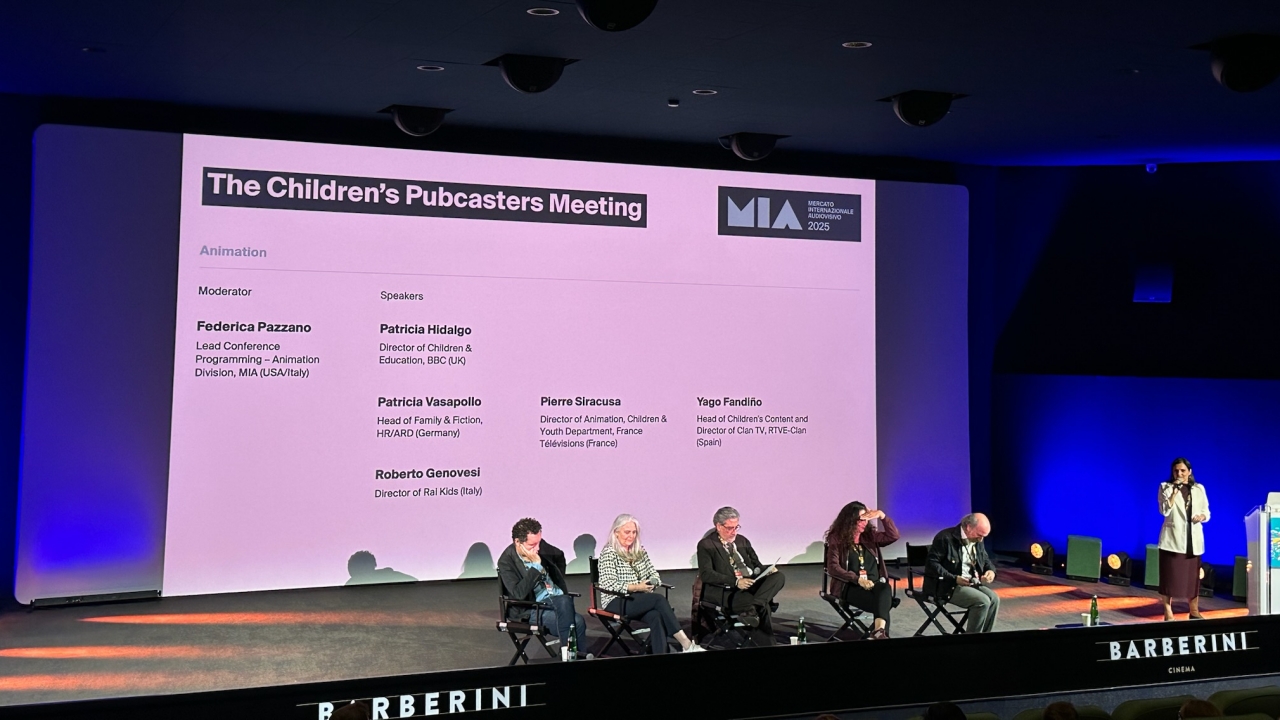Today, closing the fourth day of the MIA | Mercato Internazionale dell’Audiovisivo, the first edition of The Children’s Pubcasters Meeting took place — a brand-new, exclusive forum dedicated to children’s content in public service broadcasting.
For the first time, leading representatives of major European public broadcasters and their commissioners specialized in kids and animation content gathered on stage for a closed-door strategic discussion. The goal: to identify shared editorial priorities, foster co-development opportunities, and strengthen collaboration across territories. The following public roundtable provided valuable insights into the projects discussed and into the future of original European content designed for young audiences.
Moderator Federica Pazzano, Conference Programming Lead of MIA’s Animation Division, highlighted how: “European broadcasters expressed a shared concern over what they identified as a cultural emergency that requires coordinated political and industrial responses. Safeguarding European cultural values and identity has become essential in the face of globalized content.”
The discussion emphasized the crucial role of public broadcasters in protecting content for younger audiences. As Roberto Genovesi, Director Rai Kids, explained, “Digital platforms shouldn’t be seen as enemies, but as spaces we can integrate into our offer, on our own terms. If we manage to enter that world while maintaining editorial control, it can become an added value.”
Yago Fandiño, Head of Children’s Content and Director of Clan TV RTVE-Clan, stressed the importance of balance among broadcasters, platforms, and European institutions: “It’s not about them against us, everyone needs to have a clear, shared role.” He also pointed out the growing challenge of ensuring sustainable funding for children’s programming: “We must protect the resources dedicated to young audiences and make sure they’re used to create strong, universal stories that can speak to everyone.”
The theme of cross-border cooperation was also at the heart of Patricia Hidalgo, Director of Children & Education BBC, remarks, who noted that “European value comes from collaboration and co-producing means bringing together talent and creativity, but we need more flexible rules to make it truly work.”
Echoing this point, Pierre Siracusa, Director of Animation Children & Youth Department at France Télévisions, emphasized the need to move beyond national perspectives: “In France, our programming rules still tend to favor nationally produced content, but this system is limiting us. We should learn to look beyond our borders and value Italian or Spanish productions as well, as long as the stories are strong enough to speak to our audience. The fact that an animated show is set in Rome shouldn’t be a problem for French children.”
Finally, Patricia Vasapollo, Head of Family & Fiction HR/ARD, highlighted the importance of creative risk-taking and long-term investment: “We need budget, time, and courage to develop innovative projects. We must be willing to take risks, even when we don’t know exactly what the outcome will be.” She cited the project Any Animals, developed with university students, as a success story that “shows how patience and trust in the creative process can lead to meaningful results when supported by committed public broadcasters.”

